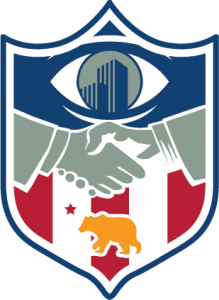FAQ
Answer: Yes, many of the CCC Investigators and Investigative Assistants speak Spanish. We also have staff fluent in Armenian and Tagalog. We can secure a translator free of charge if you speak another language, or if you prefer, you may bring your own translator.
Answer: The prevailing wage rate is the basic hourly rate paid to all workers employed on public works projects. These rates are determined by the Director of the Department of Industrial Relations (DIR) according to type of work (Laborer, Cement Mason, Plaster Tender, etc.) and location of the project. https://www.dir.ca.gov/OPRL/faq_prevailingwage.html#q15
Answer: You can contact the CCC to speak with an Investigator about your specific situation. The Investigator will guide you through your options for recovering any wages owed to you. We can help determine if there are previous or current investigations that could benefit your case.
Alternatively, you can contact the Labor Commissioner’s Office or speak with an attorney.
Our services are available at no cost to you.
Answer: Handwritten daily logs or calendar, paycheck stubs, timecards, photos from the jobs site, and other worker statements.
When keeping a log, write down the time you begin and end work every day, when you take meal and rest breaks, the total hours you work, and the name/place of the job site.
Answer: For private lawsuits, in certain circumstances it is possible to recover back wages and penalties for the previous four years from when the lawsuit is filed. In criminal cases, it may be possible for the prosecutor to recover back wages for the previous six years from when the criminal complaint was filed. In cases with the Labor Commissioner’s Office, each project will be investigated separately considering each statute of limitations. [Tippett v. Terich (1995)]
Answer: Workers are paid according to the work they performed at the job site. If you perform more than one scope of work during the day, such as, Laborer, Carpenter or Electrician, etc., you may be entitled to different hourly rates. [Public Works Manual (3.2.7.1 and 4.1.4) May 2018]
Answer: If you perform work on a Saturday, Sunday, or Holiday you may be entitled to overtime pay. The prevailing wage determinations generally specify the applicable daily, Saturday, Sunday, and Holiday overtime payment. [Public Works Manual (4.1.6) May 2018]
[Labor Code 1815]
Answer: Yes, you are entitled to rest periods and you may be entitled to extra monetary compensation if your employer fails to provide rest periods. For more information regarding rest periods click the link https://www.dir.ca.gov/IWC/IWCArticle16.pdf. [Industrial Welfare Commission (IWC) Wage Order 16-2001]
Answer: Your employer may also be responsible to pay for travel to a project and “subsistence,” or cost of living. The CCC will need to talk to you to get specific information to determine if you are entitled for “travel time” compensation. [Public Works Manual (4.1.1 and 4.1.5) May 2018]
Answer: Public works complaints should be filed as soon as possible in order for the Labor Commissioner to complete its investigation and issue assessments within 18 months of the project’s completion. The Labor Commissioner cannot take any action on public works complaints after this time period has passed. https://www.dir.ca.gov/dlse/Brochure-PW_WEB-EN.PDF [Labor Code 1741 & 1771.2]
Answer: It depends. The names of the workers that file complaints with the Labor Commissioner remains confidential during the Labor Commissioner’s investigation. If the contractor is cited for back wages and the contractor requests a hearing, which does not occur in every case, only then will the contractor learn of the person who filed a complaint. For a private lawsuit, workers names are typically disclosed when the lawsuit is filed. [Labor Code Section 1736]
Answer: No. It is illegal for an employer to fire or retaliate against an employee who has reasonable cause to claim a violation of state or federal statute, noncompliance with local, state, or federal rule or regulation, or employee safety or health, unsafe conditions or practices in the employee’s employment or place of business. [Labor Code Section 98.7(a)(1)]
Answer: California's labor laws protect all workers, regardless of immigration status. Complaints through DLSE are not screened by any immigration officers.
https://www.dir.ca.gov/LETF/What_are_your_rights_as_a_worker.pdf [Labor Code 244]
Answer: There is a possibility of hearings, interviews, or court appearances. For most cases, your presence during the investigation or hearing process is very limited. For example, if the labor commissioner conducted an investigation, issued a citation, and the contractor requested a hearing, you may only need to be present two or three days, one day during the investigation, and one or two days for the hearing.
Answer: We may be able to help you with related claims.
Fighting Fraud So Contractors Can Bid Fairly
